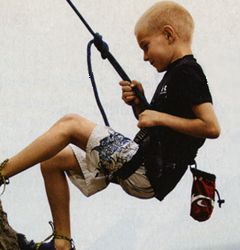My 16-month-old son, Luke, was playing in the sandbox when an older boy grabbed his shovel. I froze. Should I yell at his mom? Retrieve the shovel? Ask Luke to get it? When I emerged from my internal debate, he was happily eating sand by the fistful.
The incident made me consider the challenges my son will face. Bullies. Tests failed. Passes dropped. How do we raise kids who can cope with setbacks—in the sandbox and beyond?
Psychologist Robert Brooks, Ph.D., co-author of Raising Resilient Children, finds that resilient kids:
Know they can solve problems.
Instead of asking “Why did this happen to me?” they ask “What can I do?” Rather than rushing in to make things all right, engage your kids in coming up with solutions.
Know mistakes are learning experiences.
If mistakes are treated as an indictment of her abilities (“I told you it wouldn’t work if you rushed”), a child will give up or blame someone else to protect herself. Be aware of how you handle your own challenges; your kids model your behavior.
Know they are helpful.
“By helping someone you get a feeling of ‘because I’m here the world is a better place,'” says Brooks. To build self-worth and responsibility, give kids opportunities to help from an early age.
Know they create their own success.
If your child downplays a success, remind him of the effort he made to earn it. Having an active role in accomplishments is empowering.
Know their strengths.
Too often we focus on shortcomings, on how kids don’t meet our sometimes unrealistic expectations. Accept your kids for who they are. Celebrate their strengths. Positive feedback bolsters self-esteem.
I know one of Luke’s strengths: problem-solving. If someone takes your shovel, just use your hands.






